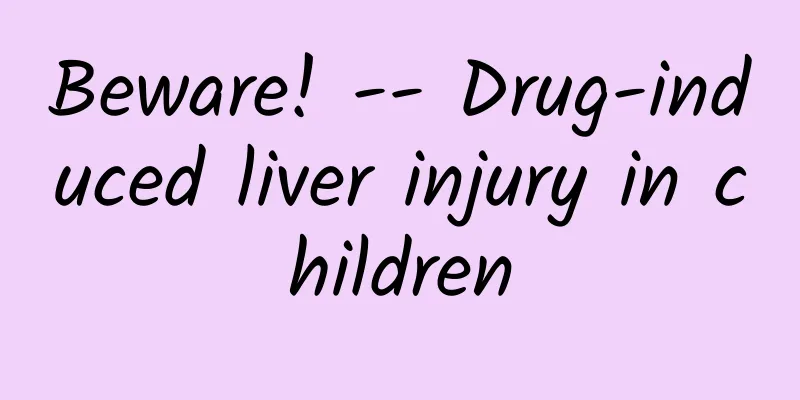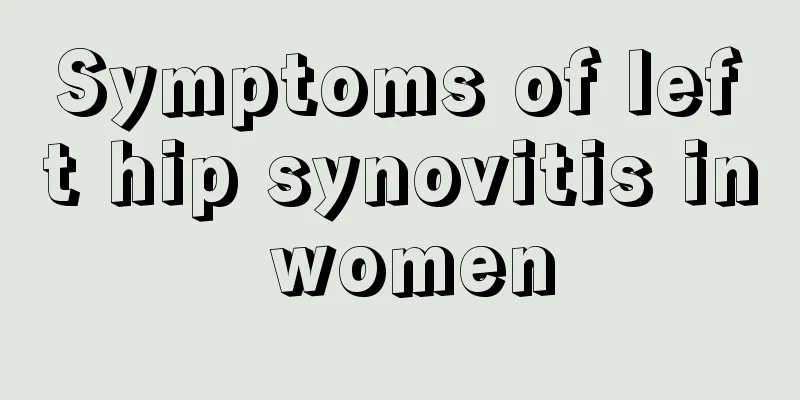Beware! -- Drug-induced liver injury in children

|
Drug-induced liver injury (DILI) is one of the most common and serious adverse drug reactions (ADRs). Severe cases can lead to acute liver failure (ALF) or even death. Due to factors such as immature liver function in children, lack of safety data related to children for most drugs, and poor awareness of rational drug use among parents, the incidence of DILI in children has been on the rise in recent years. Therefore, DILI in children is an issue that cannot be ignored. Drug-induced liver injury can be divided into two types. One is related to the dosage of the medication, that is, this type of drug damages the liver. The more you take it and the longer you take it, the more likely it is to cause liver damage. The other is called specific drug liver injury. This type of liver injury has nothing to do with the dosage of the medication you take, but is related to your personal constitution. Therefore, drug-induced liver injury may occur when the medication is overdosed, or it may occur under normal medication conditions. 1. Which drugs are likely to cause liver damage in children? Studies in my country have shown that the top three types of drugs that cause drug-induced liver injury in children are: antibiotics, traditional Chinese medicine, and antipyretics and analgesics. Other related drugs include anti-epileptic drugs, anti-tuberculosis drugs, and anti-tumor drugs. 2. In addition to medicine, the living environment of children should not be ignored! Most children have poor safety awareness and are very curious. Chemical products at home, such as detergents and pesticides, should be kept away from children to avoid accidental ingestion. For infants and young children, the oral-hand route is also a key link in the ingestion of poisons. For example, if a child touches furniture treated with pesticides and then puts the Putting your hands in your mouth and ingesting a certain dose may also cause drug-induced liver damage. 3. What should I do if I suffer from drug-induced liver injury? If drug-induced liver injury occurs, it is necessary to discontinue and replace medications under the guidance of a professional doctor, and perform liver protection treatment according to the severity and type of liver injury. In some cases where severe drug-induced liver injury rapidly develops into liver failure, liver transplantation surgery is required in a timely manner. Depending on the different types of liver damage, liver protection drugs can be selected from magnesium isoglycyrrhizinate, bicyclol, glycyrrhizic acid preparations, silymarin, ursodeoxycholic acid, glucocorticoids and other drugs. Under the doctor's advice, 1-2 drugs with different mechanisms of action should be selected for liver protection treatment. 4. How to prevent drug-induced liver injury in children? 1. See a doctor when you are sick and follow the doctor's advice when taking medicine. Do not blindly buy medicines and health products for preventive health care! Medication needs to be taken under the guidance of a doctor or pharmacist. Do not blindly increase or decrease the dosage or add other medicines! Do not listen to folk prescriptions or special medicines with unknown ingredients! 2. If the child does have a chronic disease that requires long-term medication, liver and kidney function should be monitored regularly. In many cases, liver and kidney damage does not have any symptoms, so regular check-ups, early detection, and early intervention should be carried out. 3. We should pay attention to creating a safe living environment, keep toxic items such as medicines and chemicals at home away from children so that they cannot see or touch them, and provide safety education for children above preschool age to avoid tragedies such as accidental ingestion. 4. It is recommended that patients with chronic diseases who receive long-term drug treatment, patients with severe adverse drug reactions or family histories can undergo drug gene testing to achieve "individualized" treatment and reduce the chance of adverse reactions. I hope parents and friends will raise awareness of rational use of medicines, increase vigilance, and use medicines safely to protect the healthy growth of our children! |
Recommend
Is it normal to feel sleepy when you are four months pregnant?
Pregnant women always want to sleep is a very com...
What is the cause of blood clots during menstruation after giving birth?
For many families, the arrival of a newborn baby ...
What should girls eat during their menarche?
During adolescence, most girls are relatively ign...
Is arrhythmia dangerous? What are the dangers of sinus arrhythmia on electrocardiogram?
There is an item called heart rate check in the p...
Why does a woman have pain on the left side of her abdomen?
In life, many women sometimes find that they feel...
What are the harms of cervical removal?
Cervical resection is a surgery performed on wome...
When the weather gets cold, will crayfish come out to bask in the sun? Why is the water not fertile when raising shrimp?
The weather is getting colder, and many people wh...
Does eating leftover rice and vegetables cause cancer? Can we still eat them? One article explains
Author | Xue Qingxin, registered nutritionist, re...
Why is there brown discharge during non-menstrual period?
Many women will find out. Even if you are not on ...
Girls keep running for three months
If a girl can persist in running for three months...
What are the treatments for gynecological cervical erosion?
People all suffer from diseases, especially femal...
Business Insider: Social Media Statistics for 2013
We all like to talk about social networks in term...
How many days is it good for pregnant women to eat a goose egg?
Goose eggs are a food that many people like to ea...
Why do high beams shine upwards? How can I adjust the high beams down when they are too high?
High beam is a lamp that is needed for nighttime ...
torch prenatal check
In addition to taking folic acid tablets to preve...









